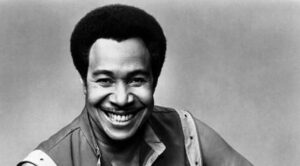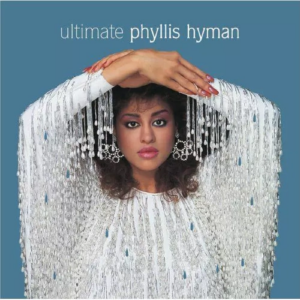The music world had an auspicious introduction to Carl Anderson through his 1973 appearance in the movie version of Jesus Christ Superstar. While the media first focused on the casting of an African American in the role of Judas, Anderson stole the show with his brooding portrayal of the deceptive Apostle and his memorable versions of “Heaven on Their Minds” and the title track. It appeared that the popular music world would soon have a new superstar.
What happened next was…nothing. Continuing to focus on stage appearances, Anderson didn’t record his first solo album for nearly a decade, signing with Columbia and releasing the middling Absence Without Love in 1983. He teamed with Skip Scarborough for the follow-up disc, On and On in 1984. On both albums Anderson’s always on-point vocals were teamed with less than stellar material and a mish-mash of styles. Fortunately, Anderson made up for them on 1985’s Protocol, working with Patrick Henderson and Earth Wind and Fire alum Al McKay on a wonderful album that began his transition to a true urban adult contemporary sound and featuring his best song to date, “Can’t Stop this Feeling.” Unfortunately, all three albums stiffed on the charts, and it appeared that Anderson’s time with Columbia would end. Then a soft duet he recorded with soap opera star Gloria Loring, “Friends and Lovers,” became an unexpected #1 pop hit, and Columbia hurriedly released Carl Anderson, a slapped together hodge-podge of new and old material that was unworthy of Anderson’s talent.
Anderson next moved to MCA for An Act of Love, a solid album that moved him closer to the developing smooth jazz genre but which received virtually no attention, resulting in this great song stylist being again stuck without a record contract. Then jazz label GRP signed Anderson to cut a pure smooth jazz CD, teaming him with Rippingtons’ lead Russ Freeman. Pieces of a Heart was both a critical and commercial success. It was the first of three strong albums on GRP and the beginning of a new career for Anderson as the guest vocalist du jour in the smooth jazz world. His work with the Rippingtons, Nancy Wilson, Eric Marianthal and others throughout the 90s kept him busy, even as his own records were only scoring moderate success.
His final recording, the live Why We Are Here, is a nice introduction for new fans to his smooth jazz work and coverage of standards that sadly went out of print quickly. His version of “Who Can I Turn To?” may be a career moment, and is certainly worth the price of the disc. It has made Why We Are Here a much sought after album.
On February 23, 2004, Carl Anderson died after a long battle with leukemia. Fans continue to mourn his death years after his passing.
By Chris Rizik










